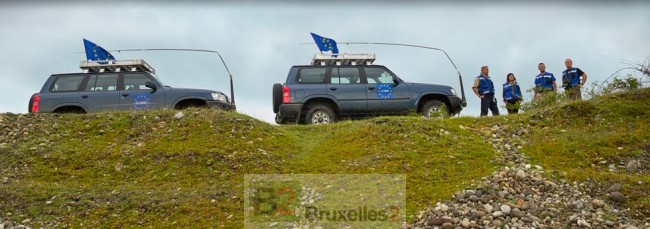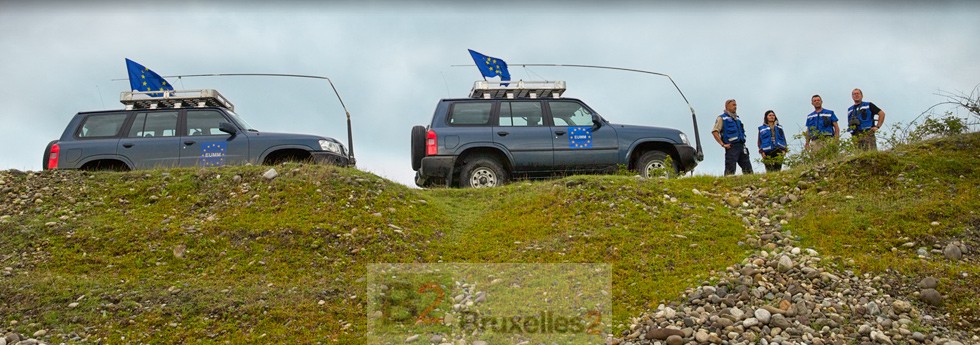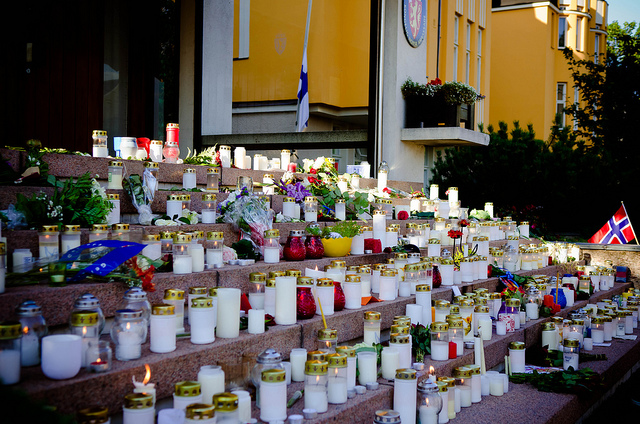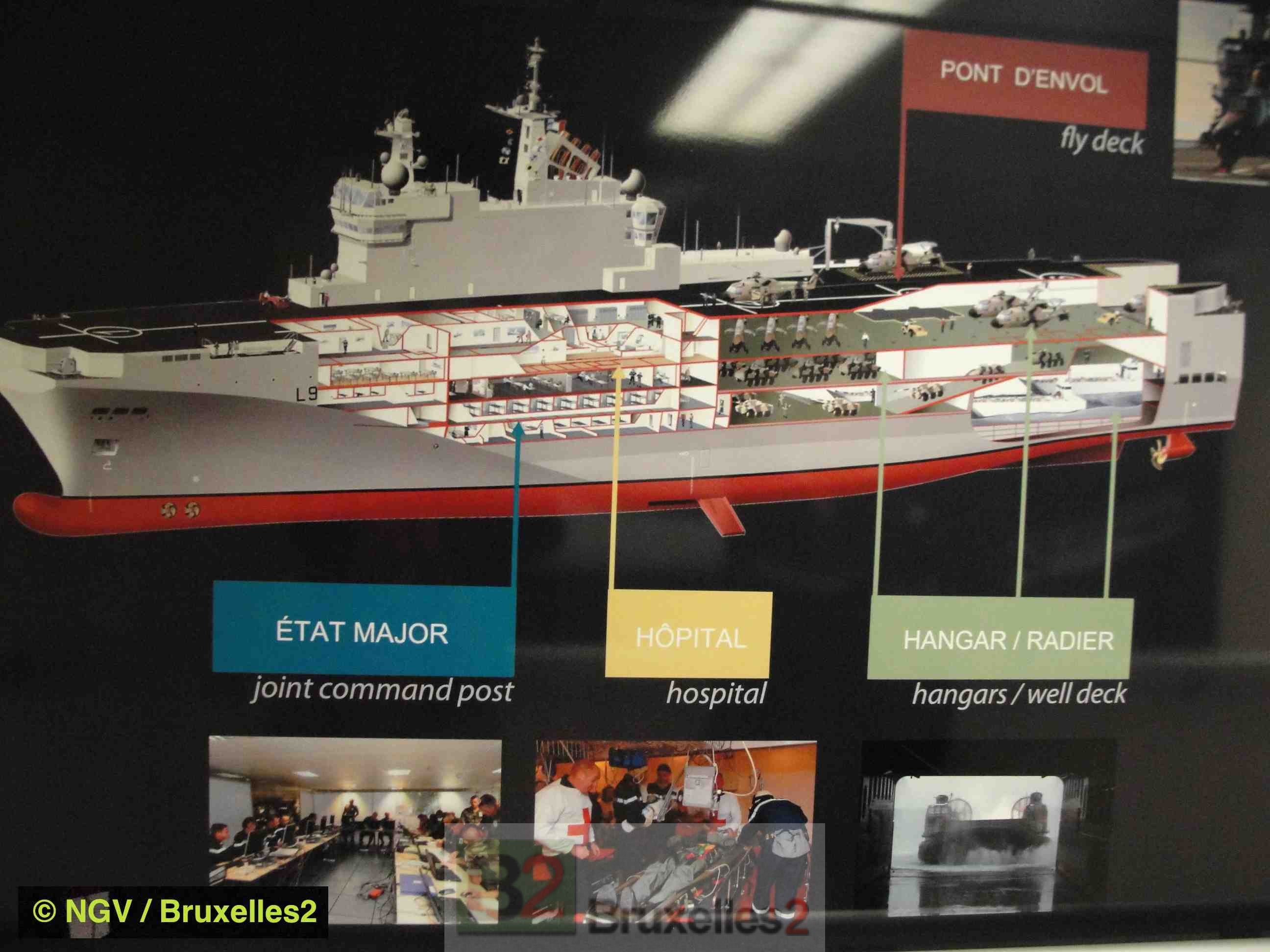I want European police on the border with Russia, says Poroshenko. Chick?

(BRUSSELS2) It was the Ukrainian President, Petro Poroshenko, who launched the idea this Wednesday (evening), after a meeting of the Ukrainian National Security and Defense Council. Meeting which followed the withdrawal of the Ukrainian armed forces from the disputed pocket of Debaltseve (*). Ukraine has officially decided " to appeal to the UN to send a peacekeeping mission to Ukraine, which will operate under the mandate of the United Nations Security Council”. " The best format for us - that would be a European Union police mission”. This mission would aim to monitor the border between Ukraine and Russia ". It would be " the best option to guarantee security, in a situation where the ceasefire is respected neither by Russia nor by those who support it “, he said. The request thus formulated raises several questions.
Is it in the Minsk agreement?
First of all, in the Minsk agreements, concluded last week, the resumption of border control was devolved to the OSCE. This border control was to occur in a kind of give and take with the political process, in particular the constitutional reform aimed at granting a large autonomy to the provinces of Ukraine. " Autonomy that Ukrainians have always promised. But that they always pushed back” as confirmed to B2 by a European diplomat. By immediately giving this role to the European Union, we change the Minsk process a little. It is also not impossible, this one leaving large gray areas. But the Ukrainian government leaves an unpleasant impression: that of wanting to review the rules, barely signed.
A Moscow agreement necessary in any case
Next, we must be aware that a political (and even operational) agreement from Moscow is going to be required, whether through a visit to the UN Security Council, for a mission under Chapter VII of the Charter (with the right of veto of Russia), or for a mission " at the invitation of Ukraine without automatically going through the UN, which is possible in itself, but again requires the intrinsic agreement of Moscow. It will also be necessary to count on an agreement from the Russian separatists. One is not automatically accountable for the other (in a sometimes very byzantine game).
A police mission only?
Finally, the very nature of the (“police”) mission calls into question. We would be more in a mixed mission: both interposition, military type, muscular observation (EUMM Georgia + type), with a "border management" component (EUBAM). It will also be necessary to define whether it is a military or civilian mission (a priori it is more of this responsibility) and especially whether the men/women deployed in the field will be armed or not (a priori, given the situation, arming seems obligatory).
Given the extent of the border, this type of mission will require far more men and equipment than for the EUMM Georgia mission. There are at least 400 km of borders that are out of Ukraine's control, according to what Ukrainian border guards told me (read: Ukrainian border guards… on the front line). And the risks incurred, such as the duration and intensity of the conflict (+ 5000 dead in Ukraine over more than 10 months of conflict against approximately 1000 dead in Georgia over a few weeks) require a "robust" mission of at least a thousand people (with a Quick Reaction force, a Role 2 type hospital, helicopters, etc.).
A challenge for Europe (and for Federica Mogherini)?
Poroshenko's request also confronts the international community and the European Union with their responsibilities. It is a real challenge that he is launching for Europe. Rather than a rather theological debate on the delivery of weapons, it is a real issue that is thus posed (**). That of Europe's ability to " respond to crises in its closest neighborhood ". The High Representative, Federica Mogherini, had repeatedly indicated that this was her top priority. She - and the Europeans through her - are now up against the wall. Will they be able to meet this challenge, both politically and operationally?
The establishment of this mission, assuming that it obtains the necessary green lights from the international community, also involves meeting significant logistical challenges. However, the EU has an advantage: a certain know-how acquired, whether in Georgia, and even in Ukraine on the other side of the country (with EUBAM Ukraine Moldova), and a certain political will attested during the various meetings of the council Foreign Affairs. Responding to this challenge would certainly be a more unifying project than deciding on new economic sanctions (or going to Libya). Additional advantage for the European Union: it has a small team of specialists in kyiv who form the (civilian) advisory mission to the Ukrainian internal security forces (EUAM Ukraine)... Come on!
(Nicolas Gros-Verheyde)
(*) Russian leader Putin had mentioned, as soon as the Minsk agreements were signed last week, this geographical pocket as one of the remaining problems to be resolved in eastern Ukraine (Read: The main elements of the new Minsk agreement. An armistice, not (yet) peace (shift)) The Russian separatists pounded the positions of the Ukrainian forces, almost surrounded, who had no choice but to leave the area. The "line of contact" between the belligerents is now more linear, without the notch of Debaltseve, which had been the consequence of the Ukrainian breakthrough to reach in particular the debris of MH17 after its destruction by fire from pro-Russian areas. It suddenly becomes much more logical and easier to control.
(**) Border surveillance by the OSCE appeared to be quite difficult to implement, outside of a framework that was very appeased of tensions.


